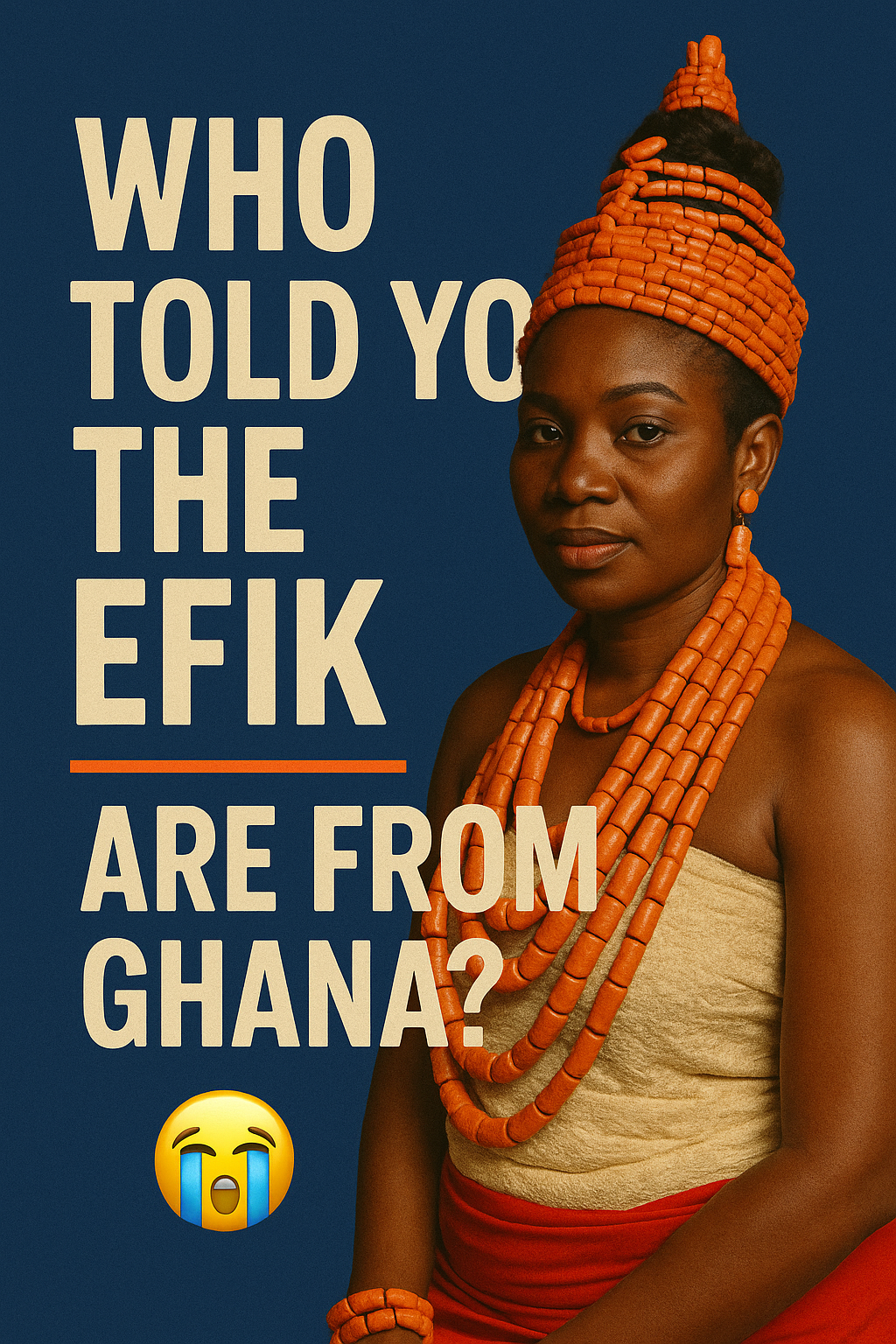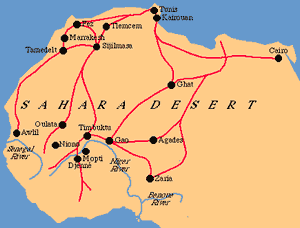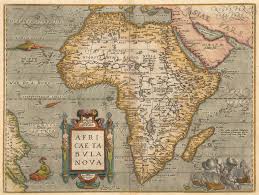Who Told You the Efik Are From Ghana?

Who Told You the Efik Are From Ghana?
Discover the truth behind the origins of the Efik people and debunk the widespread myth linking them to Ghana in this revealing historical exploration.
“Efik is from Ghana.”
Someone said that. With full confidence. Chest out. No doubt in their voice. 😭
And honestly? You can’t even be mad, because this isn’t just one person’s mistake. It’s the consequence of a larger, ongoing issue:
Nigeria has failed to properly preserve and package its full history.
Ask the average Nigerian to name the ethnic groups in the country. You’ll hear the Big Four on repeat: Yoruba. Igbo. Hausa. Fulani.
The rest? Invisible. Sidelined. Forgotten, like expired biscuits on a dusty shelf.
But Nigeria is home to over 250 ethnic groups, and each of them has a unique language, tradition, belief system, and deep-rooted history. That’s 250+ unique cultures, and yet, only four tend to make it into the spotlight.
So what happens when we erase the rest?
People start relocating entire ethnic groups across borders. Like claiming the Efik are from Ghana. 😩
So, Who Are the Efik?
The Efik people are an ethnic group native to South-South Nigeria, particularly in Cross River State. They are not from Ghana. Not even remotely.
Their ancestral lands are situated along the Cross River basin and coastal regions, especially in towns like Calabar, which was historically a key hub in West African trade. The Efik were famed as powerful middlemen in the precolonial economy, controlling trade routes between the hinterlands and European merchants on the coast.
They were master navigators of diplomacy, deeply spiritual, and culturally sophisticated. Among their many legacies is the Ekpe society, a sacred institution that governed both spiritual and political matters. The Ekpe society was not just religious; it also functioned as a social and legislative system, ensuring order, justice, and communal unity.
The Efik and Nsibidi: Africa’s Ancient Writing System
One of the most fascinating contributions of the Efik people to African civilization is their association with Nsibidi, one of the oldest indigenous writing systems on the continent.
Nsibidi is a symbolic and pictographic script used for centuries to convey messages, encode knowledge, and communicate spiritual teachings, long before alphabets like English or Arabic were introduced to the region.
Through their custodianship of Nsibidi and the Ekpe society, the Efik helped preserve systems of communication and governance that prove Africa had intellectual and political sophistication far earlier than many Western narratives admit.
These were not just “tribes” tucked away in forests. They were nations with organized societies, structured leadership, economic networks, and international significance.
So, Why Don’t We Know This?
Because somewhere along the way, we outsourced our memory.
We stopped telling our own stories. We let foreign historians define us. We handed over our heritage to textbooks that simplified our identities to just four tribes and a border drawn in 1914.
This neglect didn’t just create ignorance. It created erasure. And now, people think the Efik are Ghanaian, not because they’re foolish, but because we haven’t preserved our narrative.
The Mission to Remember: CYSTADS
That’s why initiatives like CYSTADS are so important, because Africa must remember itself.
CYSTADS is building an archive of African history, culture, and languages, not just the Instagram-friendly bits. Not just the “popular” tribes. But the entire mosaic of identities that make up this continent.
If we don’t tell our stories, others will remix them. Badly. And we’ll keep hearing nonsense like “Efik is from Ghana” in 2025, with straight faces.
Final Thought: Identity Is Not a Trend
Nigeria is a cultural superpower. But that power means little if it's hidden.
If we want to know who we truly are, we need to go deeper, beyond headlines, hashtags, or history classes that start in 1960. We need to remember the Efik. The Nupe. The Jukun. The Urhobo. The Gwari. The Tiv. The Itsekiri. The Ibibio. The Ijaw. And the hundreds of others who make up the soul of Nigeria.
This is not just history, it’s identity. And it’s time to reclaim it.


